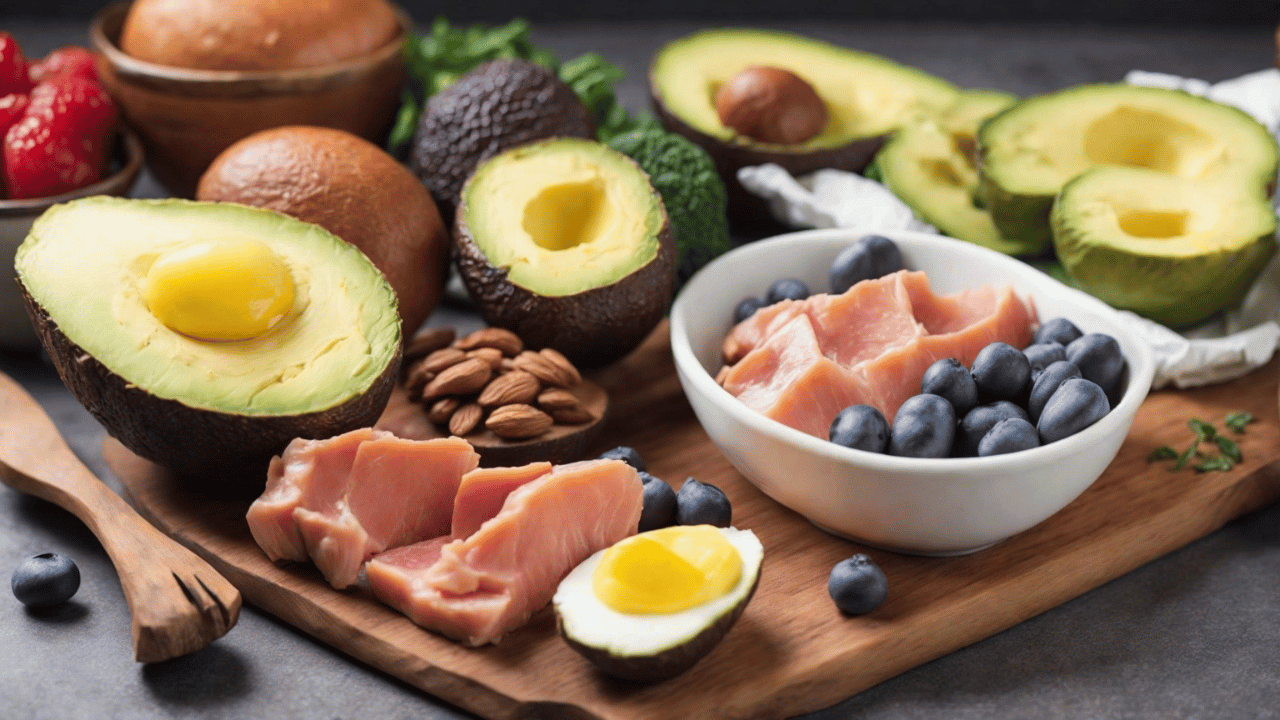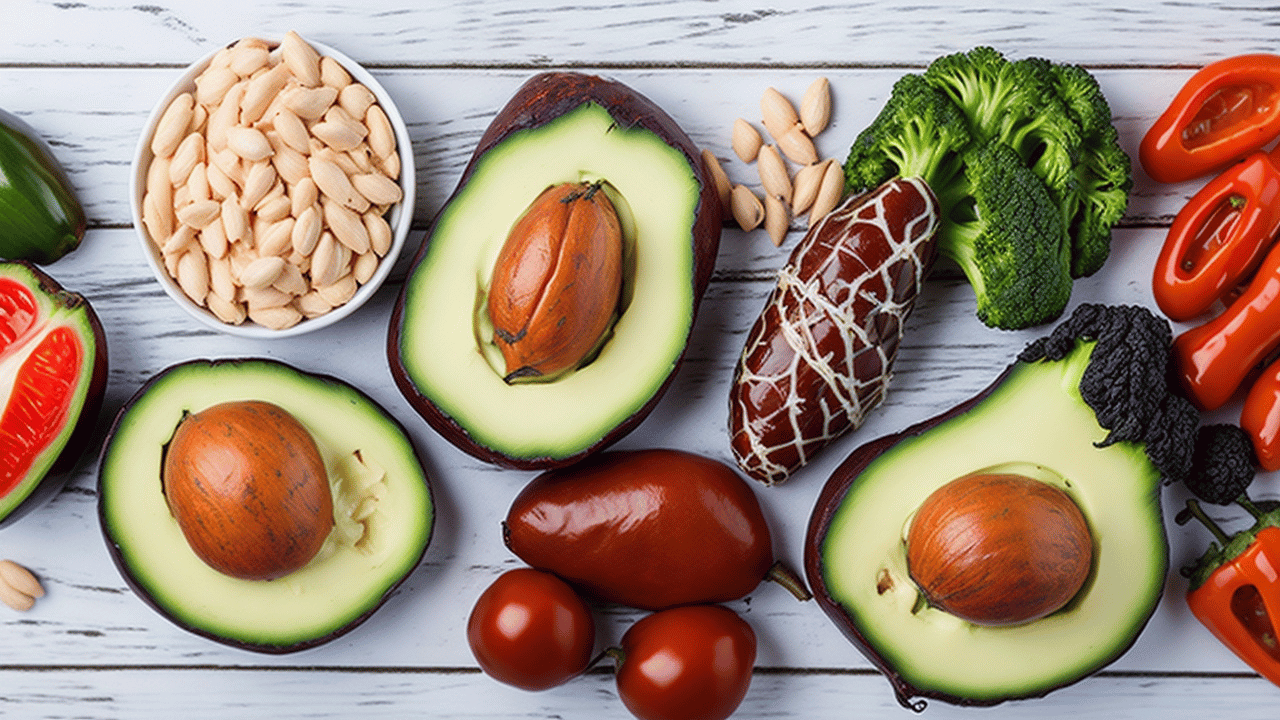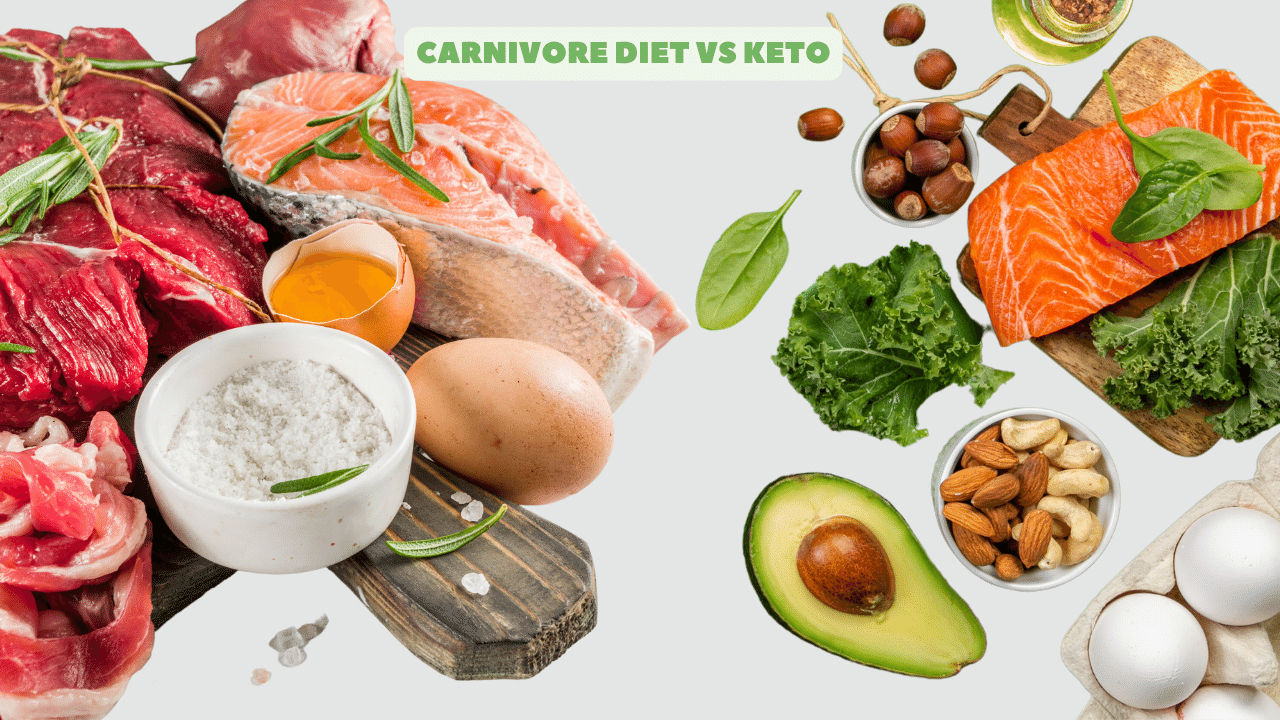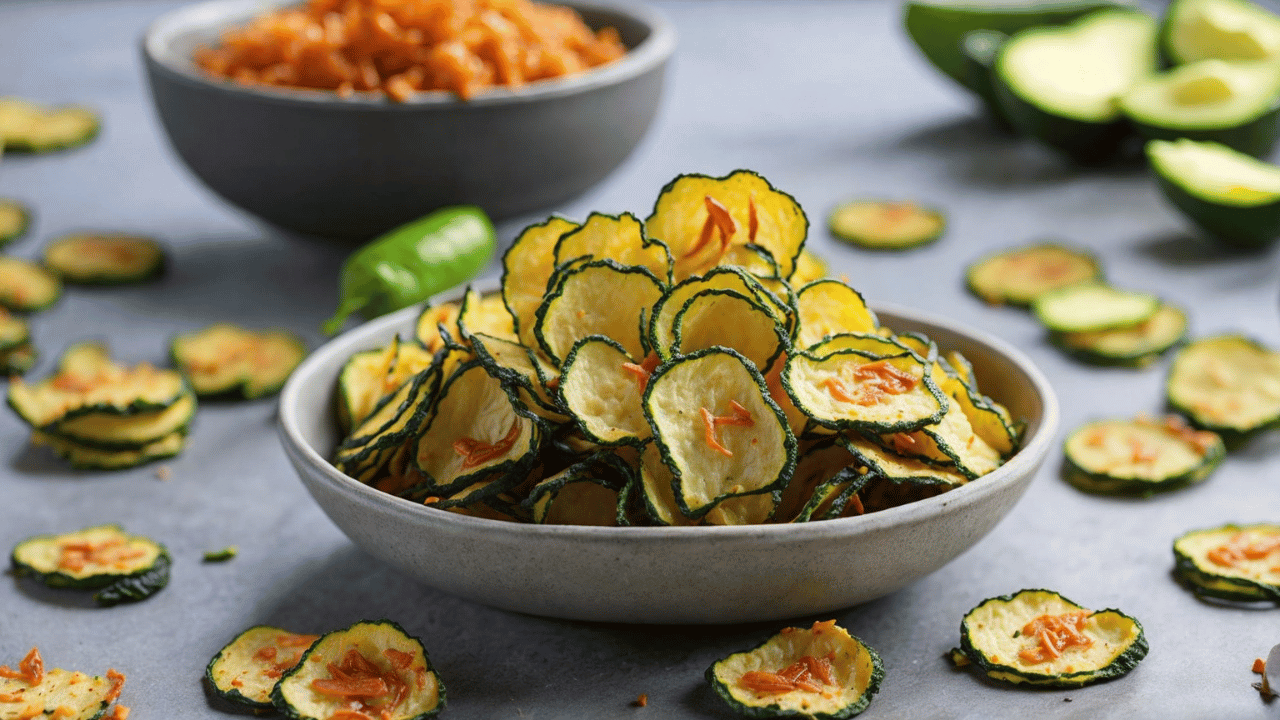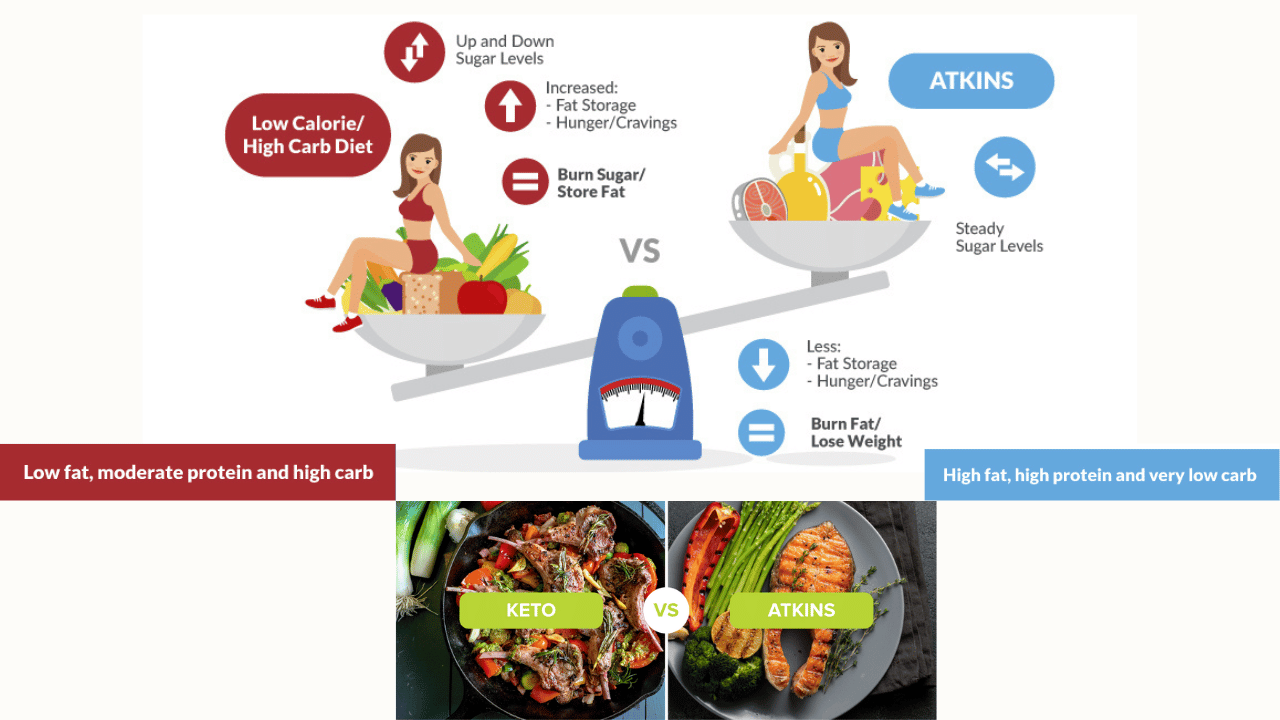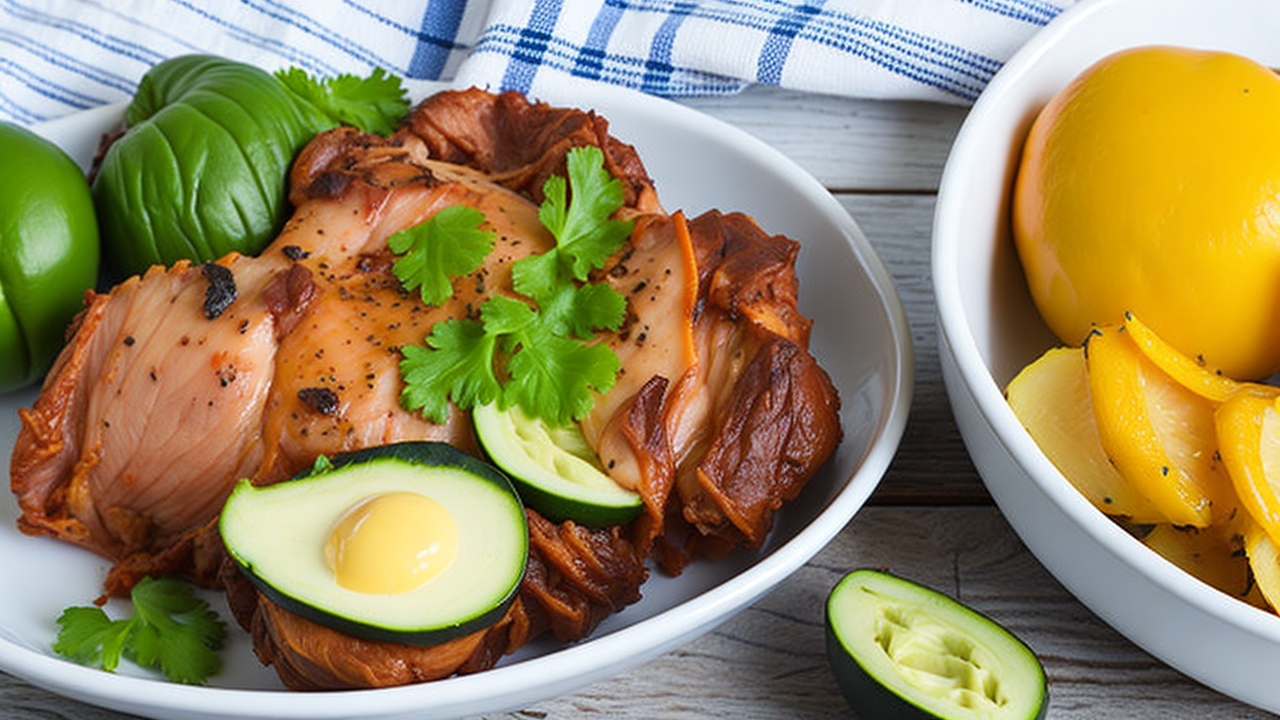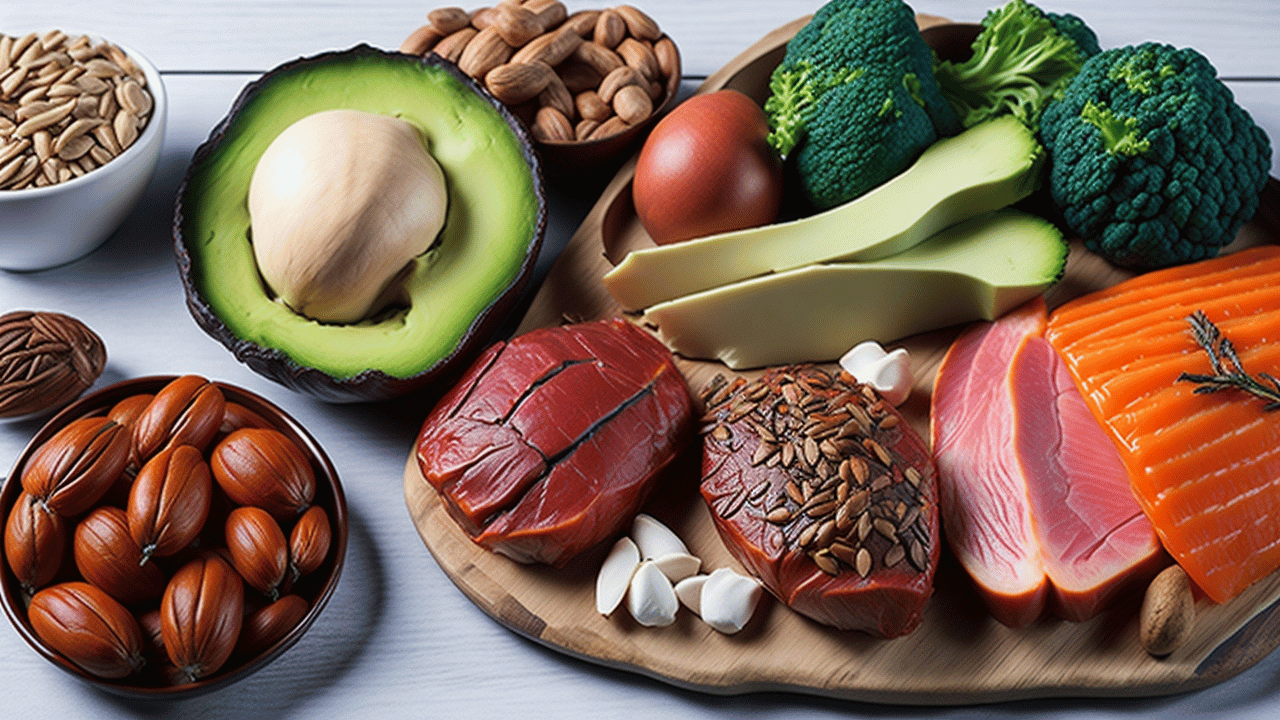A Detailed Keto Diet Food List: Your Guide to Ketogenic Eating! The ketogenic diet, often referred to as the keto diet, is a low-carb, high-fat diet that has gained popularity for its potential to help with weight loss, improve mental clarity, and manage certain medical conditions.
The central idea behind the keto diet is to induce a state of ketosis in the body, where it primarily burns fats for energy instead of carbohydrates.
Achieving and maintaining ketosis requires careful planning and monitoring of your food choices.
This article presents a comprehensive keto diet food list to help you navigate your way through this dietary approach.
Understanding the Macronutrient Ratios
To effectively follow a keto diet, you need to understand the macronutrient ratios that define it. The typical breakdown for a keto diet is as follows:
70-80% Fat: Healthy fats are the cornerstone of the keto diet, providing the majority of your daily caloric intake.
15-25% Protein: Protein consumption should be moderate to maintain muscle mass and support bodily functions.
5-10% Carbohydrates: Carbohydrate intake must be limited to a minimum to stay within the ketogenic range.
Keto-Friendly Fats
Fats are a primary source of energy on the keto diet. It’s essential to choose healthy, high-quality fats that promote ketosis and support overall health.
Here are some keto-friendly fats:
Avocado: Rich in monounsaturated fats and low in carbs, avocados are a versatile choice for keto.
Coconut Oil: Contains medium-chain triglycerides (MCTs) that are quickly converted into ketones for energy.
Olive Oil: High in monounsaturated fats and low in carbs, making it an excellent choice for cooking and dressing.
Butter and Ghee: These are great sources of saturated fats and can enhance the flavor of your keto dishes.
Nuts and Seeds: Almonds, walnuts, chia seeds, and flaxseeds provide healthy fats and essential nutrients.
Fatty Fish: Fish like salmon, mackerel, and sardines are rich in omega-3 fatty acids and support a keto diet.
Low-Carb Vegetables
While vegetables contain carbohydrates, some are low enough in net carbs to be included in a keto diet. These options provide essential vitamins, minerals, and fiber:
Spinach and Kale: Leafy greens that are low in carbs and high in nutrients, including iron and calcium.
Broccoli: A cruciferous vegetable with a low net carb count, offering fiber and various vitamins.
Cauliflower: Versatile and can be used to make keto-friendly substitutes for mashed potatoes, rice, and pizza crust.
Zucchini: Low in carbs and can be spiralized to create keto-friendly noodles.
Asparagus: A low-carb vegetable that adds a delicious crunch to your meals.
Protein Sources
Choosing the right protein sources is crucial for a balanced keto diet. Opt for high-quality, lean protein options:
Chicken and Turkey: Skinless poultry is an excellent source of lean protein.
Beef and Pork: Choose lean cuts and grass-fed options for optimal fat content.
Fish and Seafood: Low-carb, high in healthy fats, and a great source of protein.
Eggs: A versatile and complete protein source that can be prepared in various ways.
Dairy Products
Dairy products can be included in a keto diet, but it’s essential to opt for low-carb, high-fat options:
Cheese: Choose hard, full-fat cheeses like cheddar, mozzarella, and cream cheese.
Heavy Cream: A rich, keto-friendly addition to coffee and recipes.
Greek Yogurt: Opt for full-fat, plain Greek yogurt and consume in moderation due to its carb content.
Nuts and Seeds
Nuts and seeds are nutrient-dense, providing healthy fats, protein, and fiber. However, portion control is essential due to their calorie and carb content:
Almonds: Low in carbs and high in healthy fats, fiber, and vitamin E.
Walnuts: Rich in omega-3 fatty acids and a good source of protein.
Chia Seeds: Low in net carbs and high in fiber, providing a feeling of fullness.
Flaxseeds: High in fiber and healthy fats, promoting digestive health on a keto diet.
Berries
Some berries are relatively low in carbs and can be enjoyed in moderation on a keto diet:
Blackberries: A lower-carb option among berries, high in fiber and antioxidants.
Strawberries: Moderation is key, as they are slightly higher in carbs than other berries.
Raspberries: A good source of fiber and vitamins, making them a keto-friendly choice.
Keto-Friendly Sweeteners
While sugar is off-limits on a keto diet, there are several sweeteners that can be used in moderation:
Stevia: A natural, zero-calorie sweetener derived from the stevia plant.
Erythritol: A sugar alcohol that doesn’t affect blood sugar and is well-tolerated by most people.
Monk Fruit: A sweetener extracted from the monk fruit that is low in carbs and calories.
Beverages
Staying hydrated is crucial in any diet. Opt for keto-friendly beverages:
Water: The best choice for staying hydrated, with zero carbs and essential for overall health.
Herbal Tea: Non-caffeinated herbal teas are excellent options, providing various flavors without carbs.
Coffee: Black coffee is very low in carbs, but be mindful of added sugars or high-carb creamers.
Sparkling Water: Flavored or plain sparkling water with no added sugars can be a refreshing choice.

Foods to Avoid
To maintain ketosis, avoid or limit the following high-carb foods:
Grains: Wheat, rice, corn, and other grains are high in carbs and not keto-friendly.
Legumes: Beans, lentils, and chickpeas are high in carbs and should be avoided.
Sugary Foods: Candy, cake, cookies, and sugary beverages should be entirely avoided.
Fruits High in Sugar: Bananas, grapes, and other high-sugar fruits are not keto-friendly.
Starchy Vegetables: Potatoes, sweet potatoes, and other starchy vegetables are high in carbs.
Conclusion
The keto diet can be a viable option for those looking to lose weight and improve metabolic health. Choosing the right foods is crucial to achieving and maintaining ketosis.
This comprehensive keto diet food list should serve as a valuable resource as you embark on your ketogenic journey.
Always consult a healthcare professional before making significant dietary changes to ensure it’s appropriate for your individual needs and health conditions.

